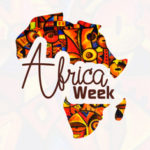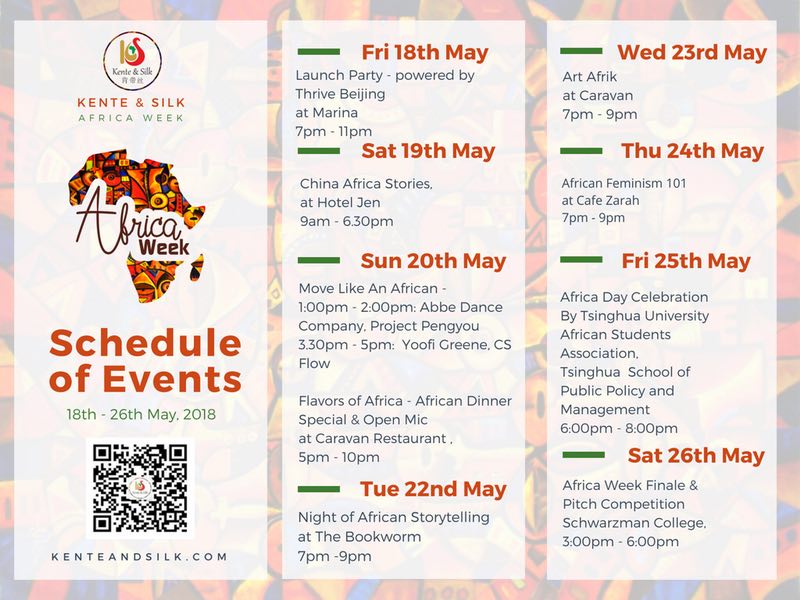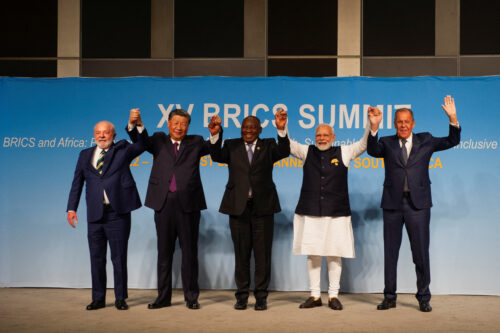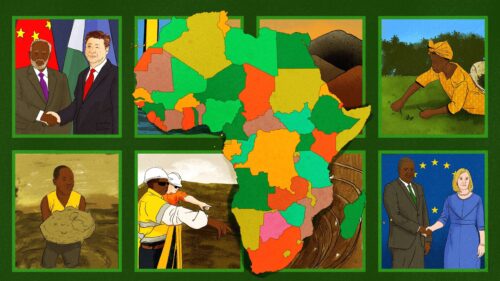‘Africa Week’ in Beijing aims to dismantle Africa-China clichés

How do Chinese perceive Africa and Africans? How do others perceive Chinese perceptions of Africa and Africans? Certain headline-grabbing events in the past year may have given people a warped perspective: an exhibition in Wuhan compared Africans to animals; a festival gala featured a Chinese actress pretending to be a black woman singing the praises of Chinese “saviors”; and the film Wolf Warrior 2, which propagated the narrative of an ailing and war-torn continent dependent on the help of intrepid Chinese soldiers. Just to name a few.
But in Beijing, a group of students and young professionals are seeking to instill nuance into public perception and conversations about Africa and China, and to encourage mutual understanding. They are the organizers of Africa Week, a nine-day program featuring high-profile speakers, panel discussions, digital art, dance performances, Ramadan-friendly African cuisine, and more. It kicks off this evening with a launch party.
“This is a community celebration aiming to actively engage Chinese,” says Ghanian/Lebanese/British Sino-African scholar/consultant Zahra Baitie, the lead organizer. “[The idea] was sparked over dinner with some friends. We were talking about ways African countries can trade with China and sell high-quality goods, and a lot of Chinese friends pointed out that because of negative perceptions about products from China, for example, chocolate from Ghana would have a hard time being understood as a premium product. So we started to brainstorm ways that could start to give people a rich experience of Africa and start to shift their perspectives.”
“It starts with the little steps,” says Nimo Wanjau, the project’s communications manager. For Wanjau and the rest of her team, the answer is to “Open up your culture for Chinese people to understand. You cannot have a dialogue without outreach and awareness. We are here, and we own our own culture. We want to correct the misconceptions.”
In order to appeal to a local audience, the Africa Week team has created Chinese versions of promotional materials and is working with local organizations to spread the word. “I think we’ll have a lot of foreigners attending, but my hope is that at every event we will have individuals who would otherwise never have gone to an African event,” Wanjau says. “And hopefully, next year, there will be more.”
Africa Week culminates with a business event in which African entrepreneurs in China can pitch their start-ups to a panel of judges for the chance to receive a monetary prize. The hope is that “their business takes off and becomes a part of the Africa success story,” Wanjau says.
“A key theme is African agency,” adds Miatta Momoh, Africa Week’s business development manager. “The whole focus is, how can we put more of a spotlight on people who care changing the relationship, but also, how can Africans actually take ownership and how can we be proactive? So [the contest] is both showcasing and a call to action in many ways. This is also partly why we’re supporting an enterprise in China, to support individuals who are creating value. We want to show African students do more than just come on scholarships as beneficiaries.”
In the end, in order to change perceptions of Africa among Chinese, “The first step is that Africans control what it is,” Momoh says. “We’re working with a lot of African diaspora in the Beijing and Chinese community. Just like I would go to a Chinese person to experience Chinese culture, it’s for Africans to represent their own cultures.” Momoh mentions that a “China-Africa Economic and Cultural Week” was organized in Guangzhou last month, but all of the organizers mentioned in media reports were Chinese.
“Perhaps I am lucky in that I have Chinese friends who encourage me to be Africa conscious and educate them,” Wanjau says. “Some Chinese are…I can’t term it racism, but it’s more ignorance. They don’t know that it is racist to say some things, and when you correct them, they are willing to learn and engage that way. But I’ve been fortunate that I have a good group of Chinese contacts who read a lot about Africa, who want to know more about Africa, who want to know more about my country.”
Baitie, the founder, points out that the project is African right down to the style of its conception. “The group [came] together very organically and I think for me that’s a reflection of African culture,” she says. “African culture has a very communal nature, and this initiative is that.”
Africa Week is May 18-26 in Beijing.







